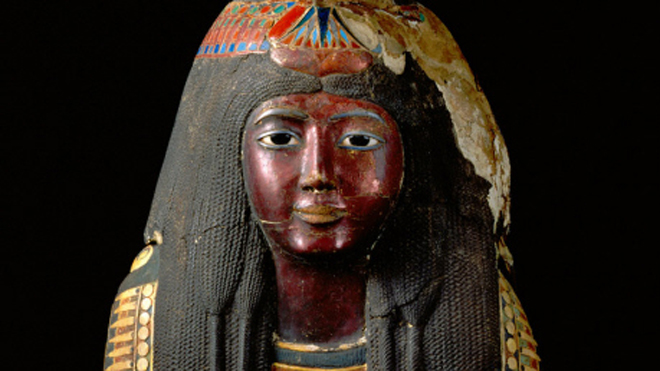(WASHINGTON-July 2, 2020) The United States Supreme Court today agreed to hear the appeal by Germany and the Stiftung Preussischer Kulturbesitz (SPK) seeking to dismiss the restitution claim by the heirs to the so-called Guelph Treasure (known in German as the Welfenschatz). The claims arise out of the forced transfer in 1935 of the Guelph Treasure by a consortium of Jewish art dealers to agents of Hermann Goering, who personally presented it as a gift to Hitler. In 2018, the Court of Appeals for the D.C. Circuit held that U.S. courts have jurisdiction over the claim under the Foreign Sovereign Immunities Act of 1976 (FSIA). That appellate court had rejected the Defendants’ arguments that U.S. courts lack jurisdiction, and that Germany’s treatment of its Jews in the 1930s should be immune from judicial scrutiny.
Sullivan partner Nicholas M. O’Donnell said, “we are grateful for the opportunity to address the Supreme Court on these important questions about holding Germany accountable for its Nazi-looted art. A 1935 transfer from German Jews to notorious art looter and war criminal Hermann Goering is the quintessential crime against international law, regardless of Germany’s Holocaust distortion in defending this case. Germany seeks to eliminate recourse for Nazi-looted art and the Court will have the chance to answer this question of critical importance for Holocaust victims.” O’Donnell added, “this is also an opportunity to rebuke the Department of Justice and State Department, who turned their back on decades of U.S. policy by siding with Germany’s effort to keep Nazi-looted art.”
Read More
Topics:
United States Supreme Court,
Nazi-looted art,
Department of Justice,
SPK,
Stiftung Preussischer Kulturbesitz,
Hermann Goering,
NS Raubkunst,
Gerald Stiebel,
Prussian Cultural Heritage Foundation,
Federal Republic of Germany,
Alan Philipp,
Welfenschatz,
State Department,
Paul Körner,
Jed Leiber
The Department of Justice has made public its plans to let the deadline pass for seeking rehearing or further review of the June, 2014 decision affirming the dismissal of its efforts to seize the Mask of Ka Nefer Nefer in the St. Louis Art Museum by civil forfeiture. In an interview with St. Louis Post-Dispatch, United States Attorney Richard Callahan stated that “The Department of Justice will take no further legal action with respect to the mask.”
Read More
Topics:
Mask of Ka-Nefer-Nefer,
St. Louis Art Museum,
Department of Justice,
Fed. R. Civ. P. 59(e),
the Art Law Report,
19 U.S.C. § 1595a,
United States,
Federal Rules of Civil Procedure,
Museums,
Customs,
Civil Forfeiture,
Ancient Egypt
I wondered aloud two weeks ago what the St. Louis Art Museum would do with its declaratory judgment action over the Mask of Ka-Nefer-Nefer after the U.S. Court of Appeals for the 8th Circuit affirmed the dismissal of the related forfeiture action brought by the government. With the question of seizure answered for good, I suggested that the museum’s next move might be to dismiss its first-filed lawsuit, because its incentive to litigate the question of title was effectively removed entirely with the forfeiture off the table. Judith H. Dobrzynski picked up on this theme at Real Clear Arts.
Read More
Topics:
Mask of Ka-Nefer-Nefer,
Real Clear Arts,
St. Louis Art Museum,
Department of Justice,
Judith H. Dobrzynski,
Fed. R. Civ. P. 59(e),
19 U.S.C. § 1595a,
United States,
Federal Rules of Civil Procedure,
Customs,
Civil Forfeiture,
Ancient Egypt
On the heels of the St. Louis Art Museum’s victory against the civil forfeiture action over the Mask of Ka-Nefer-Nefer, the question arises what the museum will do with the lawsuit it filed in 2011 concerning the mask. That lawsuit, The Art Museum Subdistrict of the Metropolitan Zoological Park and Museum District of the City of Saint Louis and the County of Saint Louis, (the “SLAM Case”) filed before the civil forfeiture action that was the subject of last week’s opinion(United States vs. Mask of Ka-Nefer-Nefer, hereafter the “Forfeiture Action”), sought a declaratory judgment on several issues. This tactic is not uncommon when two parties disagree over a claim; essentially the party who would ordinarily be the defendant (here the possessor of the property, the museum), seeks offensively a declaration about the parties’ rights. Because of its recent victory in the Forfeiture Action, the museum’s best move may be to dismiss the SLAM Case now, rather than litigate ownership questions that it no longer has to answer.
Read More
Topics:
Mask of Ka-Nefer-Nefer,
Mohamed Ibrahim,
St. Louis Art Museum,
Department of Justice,
Fed. R. Civ. P. 59(e),
the Art Law Report,
19 U.S.C. § 1595a,
United States,
Federal Rules of Civil Procedure,
Customs,
Minister of Antiquities,
Civil Forfeiture,
Ancient Egypt
The Court of Appeals for the 8th Circuit has affirmed the dismissal of the U.S. government’s attempt to seize the Mask of Ka-Nefer-Nefer from the St. Louis Art Museum. Despite the government’s persistent characterization the mask as stolen before it entered the country, the civil forfeiture case has been rebuffed. The narrow issue was whether the trial court had properly denied the government’s request to amend its complaint after an initial challenge, but as the 8th Circuit put it, “Underlying that issue is an attempt to expand the government’s forfeiture powers at the likely expense of museums and other good faith purchasers in the international marketplace for ancient artifacts.” That latter question will have to wait another day, because the case was resolved on the government’s missed deadlines and nothing more.
Read More
Topics:
Mask of Ka-Nefer-Nefer,
St. Louis Art Museum,
Department of Justice,
Fed. R. Civ. P. 59(e),
the Art Law Report,
Restitution,
19 U.S.C. § 1595a,
United States,
Antiquities,
Federal Rules of Civil Procedure,
Customs,
Civil Forfeiture,
Ancient Egypt




